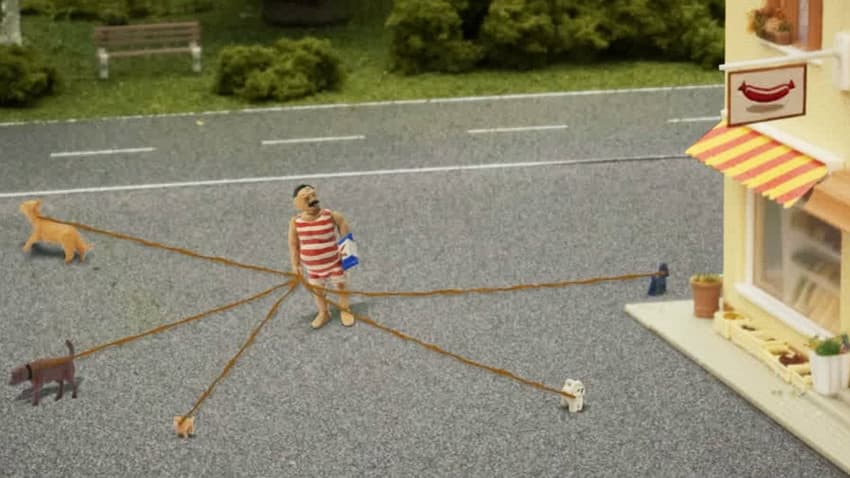Why has Denmark made a children’s TV show about the 'world's longest penis'?

The everyday adventures of new Danish kids' TV character John Dillermand like walking the dog or going to the zoo might not look like the stuff of scandal -- if the tales didn't often revolve around his oversized penis.
Even in one of the world's most progressive countries, the stories of the man with "the world's longest willy" have sparked debate about just what is appropriate for children in the programme's target audience of four- to eight-year-olds.
"We think it's important to be able to tell stories about bodies," public broadcaster DR posted on Facebook Tuesday.
"In the series, we recognise (young children's) growing curiosity about their bodies and genitals, as well as embarrassment and pleasure in the body."
Broadcast on kids' channel Ramasjang, the first of Dillermand's 13 episodes has already been watched 140,000 times since it was released on January 2nd.
His extra-long member is often key to the wacky situations in which he finds himself at one point floating over the city thanks to balloons tied to his tackle.
"It's a very Danish show. We have a tradition to push the limits and use humour and we think it's totally normal," education expert Sophie Munster told AFP.
Here is #JohnDillermand trying to light a barbecue with his exceptionally long penis! More info below: https://t.co/axb9CQIj8H pic.twitter.com/k0naL0SA6Q
— Matthew Ashton (@matthew__ashton) January 5, 2021
With some members of the public posting outrage online, far-right MP Morten Messerschmidt attacked the show in a Facebook post.
"I don't think looking at adult men's genitalia should be turned into something normal for children. Is this what you call public service?" he fumed.
Munster argued however: "The debate is from an adult perspective, in which the long penis is sexualised. Children have a different perspective.
"The size of the penis is exaggerated so much, children realise it's a joke."
The series can be watched via broadcaster DR's website.
READ ALSO: Danish zoo invites kids to watch lion dissection (2015)
Comments (2)
See Also
Even in one of the world's most progressive countries, the stories of the man with "the world's longest willy" have sparked debate about just what is appropriate for children in the programme's target audience of four- to eight-year-olds.
"We think it's important to be able to tell stories about bodies," public broadcaster DR posted on Facebook Tuesday.
"In the series, we recognise (young children's) growing curiosity about their bodies and genitals, as well as embarrassment and pleasure in the body."
Broadcast on kids' channel Ramasjang, the first of Dillermand's 13 episodes has already been watched 140,000 times since it was released on January 2nd.
His extra-long member is often key to the wacky situations in which he finds himself at one point floating over the city thanks to balloons tied to his tackle.
"It's a very Danish show. We have a tradition to push the limits and use humour and we think it's totally normal," education expert Sophie Munster told AFP.
Here is #JohnDillermand trying to light a barbecue with his exceptionally long penis! More info below: https://t.co/axb9CQIj8H pic.twitter.com/k0naL0SA6Q
— Matthew Ashton (@matthew__ashton) January 5, 2021
With some members of the public posting outrage online, far-right MP Morten Messerschmidt attacked the show in a Facebook post.
"I don't think looking at adult men's genitalia should be turned into something normal for children. Is this what you call public service?" he fumed.
Munster argued however: "The debate is from an adult perspective, in which the long penis is sexualised. Children have a different perspective.
"The size of the penis is exaggerated so much, children realise it's a joke."
The series can be watched via broadcaster DR's website.
READ ALSO: Danish zoo invites kids to watch lion dissection (2015)
Join the conversation in our comments section below. Share your own views and experience and if you have a question or suggestion for our journalists then email us at [email protected].
Please keep comments civil, constructive and on topic – and make sure to read our terms of use before getting involved.
Please log in here to leave a comment.